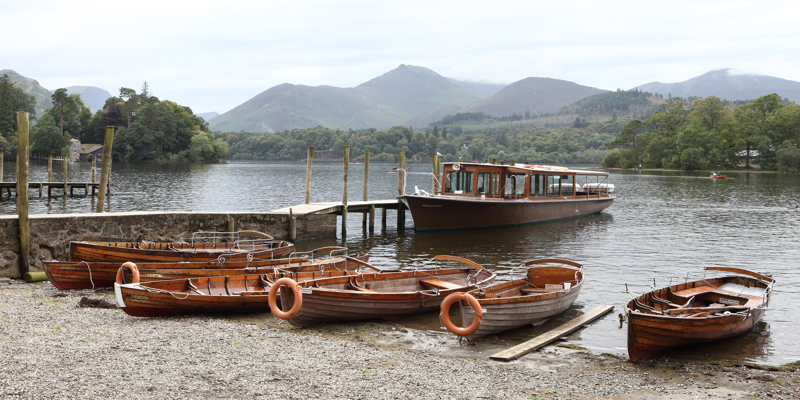
Leigh Day Meso Miles
From 8 June to 23 June 2023, Leigh Day's asbestos team will complete 2,544 miles of exercise to pay respects to those who have suffered from mesothelioma.
Posted on 23 June 2023
23 June
Day 16
Mesothelioma UK
As we end our tour of the UK, the extent to which asbestos is an ongoing, national problem becomes clear. The legacy of the massive industrial use of asbestos in the last century is still with us today and all across the country, workers, their families and their neighbours continue to suffer from asbestos related diseases.
Mesothelioma UK is national charity, established in 2008, for anyone affected by mesothelioma. It exists to support people with mesothelioma to live better and live longer and to prevent mesothelioma happening to future generations. It is headed by CEO Liz Darlison, MBE.
Mesothelioma UK work tirelessly to advocate for sufferers, including assisting with access to support and transport services, benefits advice, and specialist nursing assistance, as well as to promote knowledge of dangers of asbestos in the community. Mesothelioma UK also provides its own dedicated support groups, including for those who care for others who suffer from mesothelioma and for younger mesothelioma sufferers.
We are proud to support the ongoing work of Mesothelioma UK.
22 June
Day 15
Cheshire
There is some beautiful countryside here in Cheshire and today we are able to stroll around Tatton Park as we get in those much-needed miles to honour those who have lost their lives to mesothelioma, an asbestos related cancer.
Not sure any of us are brave enough to attempt the 300ft bungee jump on offer, with most of us instead trying to resist the urge to jump on a Segway. Even the kids are walking with a spring in their step today, with the promise of the large play area and an ice cream at the end.
The history of the region is not so beautiful. There were many power stations in the region including Fiddlers Ferry and Rocksavage power stations. The Ellesmere Port region is home to the Stanlow Oil Refinery previously owned by Shell.
Thousands of workers in the region were employed to work in these locations under terrible conditions. The high temperatures involved meant that asbestos was used extensively as lagging throughout the power stations and oil refineries.
Raw asbestos fibres arrived at power stations in large hessian sacks which were damaged through handling and transport. Teams of laggers were brought in to mix the asbestos fibres into a paste and to apply it as a form of insulation to the pipework and machinery throughout the premises. Profitability was paramount so other trades would be working close by resulting in thousands of people being exposed to asbestos, not just laggers.
We have acted for numerous clients exposed in the large chemical plants most notably run by ICI in Widnes and Runcorn and Octel in Ellesmere Port. There were miles of pipes running throughout the plants that were lagged with asbestos.
Joiners, electricians, engineers, welders and many other different trades were exposed to significant asbestos dust and fibres on a daily basis. The asbestos lagging was in a poor state and was easily disturbed as the tradesman carried out their work.
Sadly, the employers were more concerned with using asbestos products to protect their machinery and their premises than providing a safe working environment and many of the workers have gone on to develop an asbestos related disease.
Cheshire Asbestos Victim Support Group provide invaluable support to those suffering with asbestos related disease and their families. They are heavily involved in campaign work to remove old asbestos lagging from all workplaces and public buildings.
21 June
Day 14
Lake District
Today, we take in the breathtakingly beautiful sights of the Lake District. At the start of this challenge, we stated that any method of mileage would be included in our total target of 2,544 however, we will resist the urge to log in some extra ‘cheat’ miles by taking a boat trip around Lake Windemere.
We once again lace up our trainers to walk, or run for the more athletic, around this amazing area. We will earn our gingerbread treats today.
Whilst we continue on our journey, we will once again think of all those families who have lost a loved one due to exposure to asbestos in the workplace and all those who are bravely continuing their battle with asbestos related diseases.
Barrow was once a large, thriving, industrial town with Vickers Armstrong becoming one of the largest shipyards in Britain. The area had strong rail links that complimented the shipbuilding industry and the local population rose from 300 to 80,000 during World War II.
The use of asbestos was prevalent in shipbuilding. It was cheap and known to be good for fire prevention and insulation. Despite being a large employer with the means to protect their workforce, the profits of the shipyard owners took precedence over the safety of their significant workforce, many of whom have gone on to develop asbestos related diseases.
Workers from all trades including laggers, joiners, boilermakers, labourers and many more, were forced to work in cramped and dusty conditions. They were exposed to significant levels of asbestos dust and fibres which they were breathing in on a daily basis.
We acted for Stuert Galbraith who worked for the Barrow shipyard from the age of 16. He completed a 5 year apprenticeship before qualifying as a plumber. Just a child at the time, Stuert was regularly working in confined spaces in close proximity to others who were mixing and applying asbestos lagging.
He was breathing in large quantities of asbestos dust on a daily basis and sadly developed mesothelioma, an asbestos related cancer, many years later as a result. Stuert and his family are in our thoughts today along with so many others in the region who have been affected by this terrible condition.
Cumbria and Lancashire Asbestos Victim Support Group, who are part of Disability First, provide an invaluable service to so many affected by asbestos related diseases in this region. They help to support those suffering with asbestos related diseases and their families. They also campaign tirelessly to remove asbestos from all public and commercial buildings to prevent this legacy from continuing.

20 June
Day 13
Manchester
Manchester city centre is well known for its busy nightlife, theatre and the hustle and bustle of commuters during the day, but today we head to the outer parts of the city to get in those miles as we remember those who have lost their lives as a result of exposure to asbestos in the workplace. What better way to do so, than a walk along the Manchester ship canal.
As we lace up our trainers, we accept we may not make the whole 36 miles individually however, as a team it seems to be an appropriate target for the day.
The Manchester Ship Canal played a prominent role in the city’s industrial past. Asbestos materials were transported into the city via the canal with dock workers unloading raw asbestos materials on arrival.
The large hessian sacks were often damaged with asbestos dust and fibres leaking out. Many of the dockers have gone on to develop asbestos related diseases as a result of breathing in the asbestos fibres.
Asbestos was also used heavily in the construction industry. It was well known for its heat insulating properties and was commonly used in houses and commercial buildings. We represented George, who worked for Charles Topham & Sons Limited in the 1970s.
He was involved in handling asbestos sheets whilst working as a joiner building new flats in Atherton, near Bolton. George was sadly diagnosed with mesothelioma, an asbestos related cancer, in 2019. Today, as we walk along the canal, we will remember George and so many others who have died as a result of this terrible disease.
Greater Manchester Asbestos Victim Support offer invaluable support to victims like George and their families. They also tirelessly campaign for asbestos to be removed from all buildings to prevent this terrible legacy from continuing.
19 June
Day 12
Liverpool
Today, the Leigh Day team have completed 1,120 out of 2,544 miles for Meso. We will be taking in the beautiful surroundings of Liverpool as we walk along the banks of the River Mersey on Otterspool Promenade and into the Albert Dock. Voted Capital of Culture in 2008 and most recently having hosted the Eurovision Song Contest, Liverpool has so much going on.
As we take in the picturesque views we are reminded of the hardworking people of Liverpool, many of whom are now affected by asbestos exposure in their workplace many years ago.
The city is well known for its connections with the shipbuilding industry which has left behind a terrible legacy. Sadly, nearly 1200 people have died from mesothelioma, an asbestos related cancer, since 1981.
The use of asbestos was prevalent as a result of its fire-resistant properties and it was used extensively as lagging on board ships. We have represented many people who had worked in the shipbuilding industry, including Bernard Jack from Liverpool who was diagnosed with asbestosis following exposure with Blue Funnel between 1959 and 1967, and Cammell Laird between 1967 and 1968.
Large amounts of raw asbestos fibres were also brought into the city from overseas and transported to their final destination. The dock workers, employed under the National Dock Labour Scheme and later, by other employers, were offloading the large hessian sacks containing raw asbestos fibre which had often been damaged during handling and the voyages.
Conditions were terrible with many dockers recalling taking their breaks inside the holds of the ships where the air was still thick with asbestos.
The impact of these industries has had a devastating impact on the city with members of the same families and towns being affected. Merseyside Asbestos Victim Support Group work tirelessly to support those who have been affected.
They also campaign to prevent this legacy from continuing into the future, to raise awareness of the dangers of asbestos and to have it removed from homes, schools and public buildings across the UK.
18 June
Day 11
Clydebank (Glasgow)
Over the years, Leigh Day has successfully represented people in Scotland who suffer from asbestos related conditions.
Many of our clients who were initially exposed to asbestos in England and Wales will later move to Scotland, and many people worked with asbestos in lots of different jobs in their working lives – including working in both England and Scotland.
Some of our cases include settling a claim for a Scottish woman whose husband was exposed to asbestos in England and later died from mesothelioma and obtaining compensation for a man who developed pleural thickening after being exposed to asbestos at a paper mill in Berkshire.
To the north west of Glasgow is Clydebank, the historic shipbuilding town. In Clydebank, the 150-foot-high cantilever crane known as the Titan Crane can be found. The Titan Clydebank, pictured below, was initially designed to lift heavy machinery during the fitting out of battleships and ocean liners.
Now, it is a popular tourist attraction and a Category A Listed historical structure. It has even been featured on the Clydesdale Bank £5 note.
Clydebank has also inherited a darker legacy from its shipbuilding days. Asbestos insulation materials were used extensively in the shipbuilding industry, and the John Brown & Company shipyards at Clydebank was no different.
Thousands of workers were exposed to asbestos, and many of these workers went on to develop and die from asbestos related conditions. In the centre of Clydebank can be found the international asbestos memorial, which is dedicated to all those, known and unknown, who have lost their lives due to asbestos related conditions.
We are proud to support Clydebank Asbestos Support, who provide support to people in Scotland who are affected by asbestos related conditions.

17 June
Day 10
Tayside
In the past, the banks of the river Tay bustled with the thousands of workers employed in Scotland’s thriving shipbuilding industry. Nowadays, the redeveloped waterfront of Scotland’s sunniest city is more likely to be bustling with tourists and office workers, but in some unfortunate respects the legacy of the shipyards lives on.
Asbestos was used extensively in the shipbuilding industry and decades later, many of those workers and members of their families have sadly gone on to develop asbestos related diseases as a result of exposure to the lethal mineral.
Based in Dundee, Action Asbestos (@asbestos_action) was formed in 2002 by people with asbestos related diseases and their families. For over 20 years they have provided emotional and practical support to asbestos victims and their families throughout Scotland whether that be by visiting their service users at home, helping with benefit forms or simply being there to listen.

16 June
Day 9
Yorkshire
Leigh Day has acted for many people exposed to asbestos across Yorkshire.
On the western edge of Yorkshire, Hebden Bridge was home to the Cape Asbestos factory at Acre Mill. The Acre Mill factory was notorious for exposing its workers to asbestos dust, many of whom have since died from asbestos related cancers. The site was the focus of the documentary ‘The Dust at Acre Mill’ in 1971, in which the conditions at the mill were criticised. The disastrous health consequences of Cape Insulation’s practices were also the subject of the documentary Alice, a Fight for Life.
East of the Acre Hill factory, Leeds was the home to J.W. Roberts whose asbestos factory was based in Armley. J.W. Roberts manufactured asbestos mattresses which were used for insulating boilers and lining bulkheads of ships. The asbestos mattresses were made using deadly blue asbestos, which is recognised as being the most toxic form of asbestos. Many of the workers employed by J.W. Roberts unfortunately went on to develop asbestos related conditions.
In the case of both the Armley and Acre Mill factories, it was not only the workers of the factory that were exposed to asbestos dust but also the nearby residents, including children, who used to play with the asbestos “snow”.
Yorkshire is home to SARAG - Yorkshire & Humberside Asbestos Victims Support Group. Initially assisting people in South Yorkshire and North Nottinghamshire, it has expanded to cover other parts of the Yorkshire and Humberside region from its offices in Rotherham and Leeds. The group offers help, information, advice and support to people throughout the region affected by asbestos related diseases.
SARAG is a charitable organisation and relies on funding from donations, grants, their own and others fundraising events. Donations are always welcome to enable SARAG to continue providing the very valuable support they give to asbestos victims in the Yorkshire, Humberside and North Notts areas.
We are also proud to support Mesothelioma Support Yorkshire (MESSY) who provide vital help to people affected by mesothelioma in Yorkshire. MESSY is run by Simon Bolton, a Mesothelioma Specialist Nurse who attends the support group meetings. The meetings usually take place monthly in Park Plaza and also via Zoom. If anyone with mesothelioma in Yorkshire requires assistance, please contact Simon on 0787 551 1323 or email simon.bolton1@nhs.net
15 June
Day 8
London
It is a pleasure to be blogging this week in relation to London Asbestos Support Awareness Group.
LASAG was set up by The London Hazards Centre and obtained independent charity status in 2017. LASAG offers free advice and support for anyone affected by mesothelioma or other asbestos related diseases throughout London and the South East including Essex, Kent, Hertfordshire and Surrey.
London and the South East of England have some of the highest rates of mesothelioma in the UK. Figures published in 2022 by the Health and Safety Executive (HSE) show that areas with the highest rates of mesothelioma in men are where industrial sites were located, such as shipyards and asbestos product manufacturers. Sadly, as a centre for industry and shipping, London and the South East have been badly affected by asbestos related conditions.
Large quantities of raw asbestos was shipped from other countries into the London Docks. The dockworkers who unloaded the raw asbestos from these ships were exposed to that asbestos and as a consequence, have contracted asbestos diseases. Similarly, high numbers of dockyard workers who were employed at the Naval Dockyard in Chatham, Kent, were exposed to asbestos in the engine rooms of warships that had been constructed with asbestos products.
Asbestos insulation materials were manufactured at the now closed site of Cape Asbestos in Barking. The HSE statistics show that Essex is particularly badly affected by mesothelioma, with Barking and Dagenham, Castle Point, Thurrock, Havering and Basildon being among some of the worst affected areas.
However, whilst in the past many of our clients have worked in the industries described above, we are now finding a significant number of our clients have been exposed in other professions, such as teachers, doctors, nurses, bank tellers, office and shop workers, and those working in the production of TV programs such as Doctor Who. This is as a consequence of the buildings that they are working in have been constructed with asbestos products such as Asbestos Insulation Board (trade name Asbestolux), asbestos cement, Artex, asbestos ceiling tiles, and sprayed asbestos.
We have represented thousands of clients who have been exposed to asbestos whilst employed in many professions across London and the South East. One such client, who we succeeded in obtaining compensation for, worked at Bexley Hospital as an engineer’s assistant up until the early 1980s. Not only were we able to obtain a substantial lump sum payment but we were able to secure funding for ongoing treatment which his treating doctor recommends, such as immunotherapy, which he continues to receive more than three years after his settlement was agreed.
LASAG hold regular meetings across four counties in the South East, including meetings in Canterbury, Surrey, Sevenoaks, Sheppey, Rainham, Bexley, Dagenham, Tunbridge Wells and London. Our clients always express their gratitude that they are able to attend meetings close to their home and sing the praises of the support group workers.

14 June
Day 7
Tyne and Wear
The rivers Blyth, Tyne, Wear and Tees were home to a thriving shipbuilding industry and by the start of the 20th century, half of the world's ships were being constructed in the North East of England. Asbestos was used extensively in the shipyards and, as a result, sadly the North East of England has one of the highest number of deaths from asbestos related disease in the UK.
In 2023, asbestos partner, Steven Dickens acted for a Newcastle man, who we are calling Roger. Roger was exposed to asbestos working as a caulker and burner in various shipyards on the Tyne throughout the 1960s and 1970s. He was exposed to sprayed limpet asbestos that was applied to bulkheads and deckheads, to pipe lagging made from asbestos, and to Marinite board that was cut in his presence. We were able to settle his case within 10 months of instruction for over £160,000 plus the costs of treatment should Roger require it in the future.
Readley (@ReadleyMeso) an Asbestos and Mesothelioma Support Group provides vital assistance to people affected by asbestos related disease in the North East.
Readley was set up in 2015 by Sam Cox, who lost her father to mesothelioma. Sam is an accredited Counsellor and Psychotherapist. She works alongside Joanne Murray, a retired nurse, who also lost her father to mesothelioma.
The monthly support meetings take place monthly at the Hall Garth Golf & Country Club Hotel in Darlington and at the Grand Hotel in Sunderland. During the covid lockdowns Readley quickly adapted to provide online support meetings and have continued to provide this service alongside in-person meetings.
Each support group meeting is also attended by a Mesothelioma UK Clinical Nurse Specialist (Leah Taylor, Joanne Anderson or Helen Wallace), and Sarah Thomas, a welfare benefits advisor.
We are proud to work with Readley and to be supporting them through Meso Miles.
13 June
Day 6
Derbyshire
The Leigh Day Asbestos team are currently on day six of Meso Miles and have reached 213 miles out of our aim of 2,544. Before embarking on the rest of the challenge, we are going to take a brief pause and look at Derbyshire and the East Midlands.
Derbyshire has a very rich and varied history and is the birthplace of a great deal of the United Kingdom’s industry and power generation. Historically, Derbyshire has been an important site for the railway industry, textile factories, coal mines, coke works, engineering and the power generation industry. Its neighbours in the East Midlands, such as Nottinghamshire, Leicestershire, Lincolnshire, and the other surrounding counties share similar industrial pasts.
An aftermath of this industrial history is, sadly, the extensive use of asbestos which has led to a great deal of asbestos related disease among the region’s past and present residents. Due to its heat and fire-resistant properties, asbestos was frequently used across the industries that have had such prevalence throughout the Derbyshire and the East Midlands. Additionally, the general use of asbestos throughout the 20th century means that there have been instances of employees in other areas such as shops, offices, hospitals and even potteries where asbestos was present in the workplace, have also suffered exposure. This was the case in the matter of Barbara, who was exposed to asbestos after an extension was built in the Northamptonshire based shop where she was employed in the 1970s. Barbara instructed Leigh Day and her case settled ahead of trial in 2022.
In 2002, the Derbyshire Asbestos Support Team (DAST) was established to offer support, advice and assistance to people who are suffering from an asbestos related disease, as well and their families.
Their operations are not limited to Derbyshire, and they also offer advice and support, and carry out home visits, to those affected by asbestos related disease in the surrounding areas, including Nottinghamshire, Northamptonshire, Leicestershire, Burton-on-Trent and Lincolnshire. You can find out more about DAST at their website or on Twitter @DAST24.
12 June
Day 5
West Midlands
On Day 5 of Leigh Day Meso Miles we are looking at the work of ASCE (Asbestos Support Central England. @AsbestosCentral supports asbestos disease sufferers across the whole of the West Midlands region including Birmingham, Gloucestershire, Herefordshire, Oxfordshire, Shropshire, Staffordshire, Stoke, Warwickshire, Wolverhampton and Worcestershire.
Today, during a brief pause from the walking, running, cycling (and whatever other inventive ways the team is racking up kilometres), we are focusing on the region of Birmingham and the West Midlands, where a momentous industrial history has also left a legacy of extensive asbestos use in its past, resulting in a substantial amount of asbestos related injury among its present populace.
Birmingham and the West Midlands is perhaps best known for its industrial heritage. It is considered to be the region where much of the UK’s Industrial Revolution began and saw enormous amounts of industrial activity as the 18th and 19th centuries progressed. Birmingham even received labels including the ‘Workshop of the World’ and the ‘City of a Thousand Trades’ due to the vast and varying industries that it was home to, including metalware, automobiles, jewellery, and numerous others.
Sadly though, the industries that boomed throughout these areas are ones which have historically used asbestos products.
Asbestos, as a heat and fire-resistant product, was extensively used in many factories, manufacturing plants and workshops across many different industries. Workers who were employed by these industries were very often not made aware of the dangers of asbestos. Leigh Day has represented many clients in Birmingham and the West Midlands who either used asbestos products in their day-to-day work or were exposed to it as it was present in their work environment, such as John who secured a six figure settlement after he was exposed to asbestos during his employment as a field services engineer in between the 1970s and 1990s. Please click this link to read his story.
However, whilst in the past many of our clients have worked in the industries described above, we are now finding a significant number of our clients have been exposed in other professions, such as teachers, doctors, nurses, bank tellers, office and shop workers, and those working in the production of TV programs such as Doctor Who. This is as a consequence of the buildings that they are working in have been constructed with asbestos products such as asbestos insulation board (trade name Asbestolux), asbestos cement, Artex, asbestos ceiling tiles, and sprayed asbestos.
Asbestos Support Central England is a charity that helps and supports anyone living in the region who is affected by asbestos related diseases and campaigns to protect current workers and communities. ASCE operates across the whole West Midlands region and can make home visits. Please click this link to go to ASCE’s website for more information.
11 June
Day 4
HASAG – Hampshire and South Coast, Southampton, Portsmouth
The Leigh Day Asbestos Team have reached Day 4 of Meso Miles, still aiming for 2,544 miles. While we rest some slightly sore legs, we are taking a look at the sunny South Coast of England, including Hampshire, Southampton, Portsmouth.
Counties across the South Coast have played an important part in the UK’s maritime history. Southampton throughout the 20th century was a vital port, serving as both the home port for the RMS Queen Mary and RMS Queen Elizabeth and later becoming a critical port during both World Wars. Hampshire shared similar importance due to Portsmouth’s large naval base during the World Wars, and its dockyard remains a chief source of employment today.
The South Coast also has ties to the UK’s petroleum refining industry, with the 20th century seeing major refineries being completed in Hampshire and Essex. These refineries, such as Fawley Oil refinery and the Coryton Refinery, were also huge employers throughout the area.
Unfortunately, these are industries which have historically been linked to extensive asbestos use. Due to its resistance to very high temperatures and fire as well as its ability to withstand corrosion, asbestos has been used as a material to insulate boilers and pipes aboard ships and in refineries. Sadly, this has led to a high amount of asbestos related disease throughout the South Coast.
Offering support to those affected by asbestos related disease throughout Hampshire and the South Coast is HASAG. Founded in 2006 by Lynne Squibb and Diane Salisbury following their father’s diagnosis with mesothelioma, they aim to provide free support, guidance and information for those suffering with an asbestos related disease. They also hold events such as their annual Action Mesothelioma Day, taking place this year on 7 July 2023 in Portsmouth. You can find out more about this event as well as the amazing work they do on their website.
10 June
Day 3
Wales
Today, Saturday, we are supporting the work of Asbestos Awareness and Support Cymru (AASC) and looking at Wales’s strong industrial heritage which has sadly left a legacy of asbestos related disease across Cardiff and South Wales.
Steel plants once operated all over South Wales and exposed many steelworkers to dangerous levels of asbestos. Of mention are Port Talbot, Llanwern Mill and East Moors Steelworks where asbestos was used extensively and decades later have been linked with the asbestos related deaths of many former workers.
Similarly, workers in power stations such as Carmarthen Bay, Trawsfynydd and Abrerthaw, and dock workers in, for example, Barry and Vale of Glamorgan were exposed to high levels of asbestos through their work.
Leigh Day’s asbestos team have acted for clients exposed to asbestos in Wales. Daniel Easton at Leigh Day pursued a claim for a gentleman in the Newport area for his past exposure when working on building sites alongside other tradesmen who were using asbestos. The claim successfully settled for a six-figure sum.
Asbestos Awareness and Support Cymru (AASC) was set up in 2012 by Joanne Barnes-Mannings and Lorna Johns. Together they have created a network of help and support to those living with asbestos related diseases and their families. The group also focuses on raising awareness of the danger asbestos still poses today.
The charity hosts monthly ‘Café AASC’ Catch Up meetings and also runs online meetings for those less able to travel. The support AASC provides is vitally important to asbestos victims and their families in Cardiff and South Wales and we are proud to be supporting them.

Port Talbot
9 June 2023
Day 2
East of England
Today’s blog is for the East of England Asbestos Patient Support Group (EEA-PSG), who provide support to patients and their families across Norfolk and Suffolk.
Since I was brought up in the Norfolk Broads, it is a pleasure to write this blog to highlight the important work of the EEA-PSG in the East of England.
As largely rural areas, people may not associate Norfolk and Suffolk with asbestos diseases to the same extent as more industrial areas, however the counties sadly have high rates of mesothelioma. Since asbestos was commonly used in factories, farm buildings and commercial premises in multiple forms, including asbestos sheets, pipe lagging and roofing., many workers in the construction industry, such as carpenters, plumbers and electricians were then exposed to asbestos dust when carrying out work in these buildings.
With striking landscapes and pretty coastal towns, Norfolk and Suffolk are also popular areas for people to retire to. Asbestos conditions have long latency periods, with symptoms sometimes beginning many decades after a person was exposed to asbestos dust, and people often being diagnosed in their 60s, 70s and 80s. Therefore, with many retires in the area, this may also contribute to the area having high rates of asbestos related conditions.
Leigh Day have acted for many asbestos victims in the East of England, including for Rosalie Cooper, who was exposed to asbestos when working as a vegetable packer at the Dalgety produce factory in Cambridgeshire between 1991/92 and 2003.
Rosalie was exposed to asbestos dust from regular building work which took place at the factory. She was diagnosed with mesothelioma in December 2017 and sadly passed away in October 2018. Rosalie’s family instructed Patrick Walsh to bring a claim against Rosie’s former employer, which resulted in a payment of substantial damages to her widower, Brian.

8 June 2023
Day 1
South West
Today’s blog is in relation to South West Asbestos Support Awareness Group (SWASAG), who perform fantastic work supporting sufferers of asbestos related conditions and their loved ones across the South West of England including Devon & Cornwall.
Sadly, hundreds of Plymouth families have been affected by asbestos related diseases and figures show that it has the sixth highest rate of male deaths from mesothelioma in the UK. The counties of Cornwall and Devon have a long industrial legacy of asbestos which closely relates to the shipbuilding, mining, engineering and construction industries.
The highest mortality rates are those associated with the shipbuilding industry, in which asbestos was widely used at all stages of the construction process for insulation and its heat resistant properties.
Asbestos was also used for refitting and refurbishment work. For workers this meant exposure to asbestos was inevitable. The historic activities of the once vibrant Devonport Dockyard where hundreds of vessels were constructed had a large part to play in the number of asbestos related cases.
Leigh Day has acted for many people exposed to asbestos in the West Country. Daniel Easton acted for the family of Bob Unstead who was diagnosed with mesothelioma. The Claim was brought against his former employer, Kitsons where Mr Unstead recalled exposure to asbestos from undertaking lagging activities. Despite an initial denial of liability, the claim was resolved at a settlement meeting a month before trial.
Ewan Tant successfully obtained compensation for a gentleman in the Plymouth area for his exposure at a heating and ventilation engineering company. The settlement included substantial private medical costs for immunotherapy treatment.
SWASAG hold an annual fundraiser, which this year was held at The Great Hall at The Alverton, Truro in January 2023. Fundraising helps the group to provide vital services, such as providing financial and legal information, advice on available benefits and holding regular coffee mornings in Plymouth, Truro and now in Torquay as well.

5 June 2023
We know the tireless and invaluable work that all of the support groups put in to assisting people suffering from life-changing asbestos-related diseases. We see the incredible help provided to our clients, who speak so highly of the support groups and the support group workers.
We have therefore decided to dedicate 8 – 23 June 2023 to raising funds and awareness for all of the support groups around the UK.
We have set as our target 2,544 miles, which is the same number as those who sadly lost their lives to mesothelioma in 2020, the last year of recorded data. We will be recording the miles covered on our daily exercise, whether walking, running, cycling, rowing, or even surfing and kayaking! We will be marking and visiting the sites of some of the notorious asbestos hotspots in each region and paying respect to those who have suffered as a result of their terrible legacies.
We will be supporting a number of support groups, from Dundee to Devon and Cornwall, taking in Newcastle, Barrow and Blackpool, Liverpool, Manchester, Leeds, Sheffield, Chesterfield and Derby, Birmingham, Cardiff, Bristol, East Anglia, Southampton, London and the Medway.
Follow our progress on this dedicated blog and on our twitter feed, @LD_Asbestos

Asbestos and industrial diseases
Get help today if you have been diagnosed with an asbestos-related disease



![Photo Of L Smee[24]](/media/o2cey0ss/photo-of-l-smee-24.jpg?rxy=0.52758620689655178,0.37634408602150538&width=400&height=300&v=1d96188a5803670)